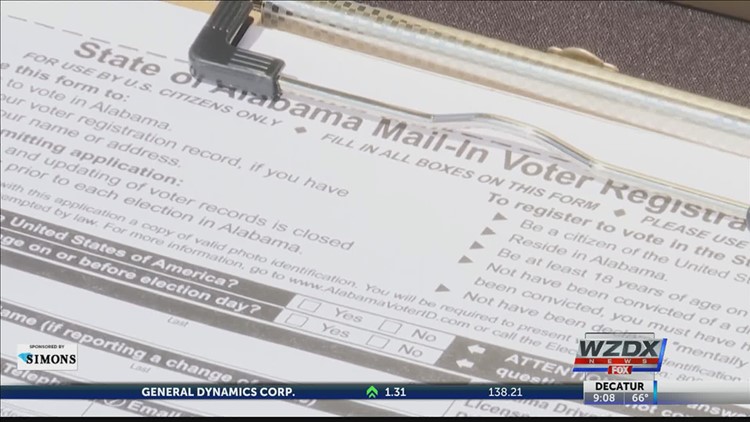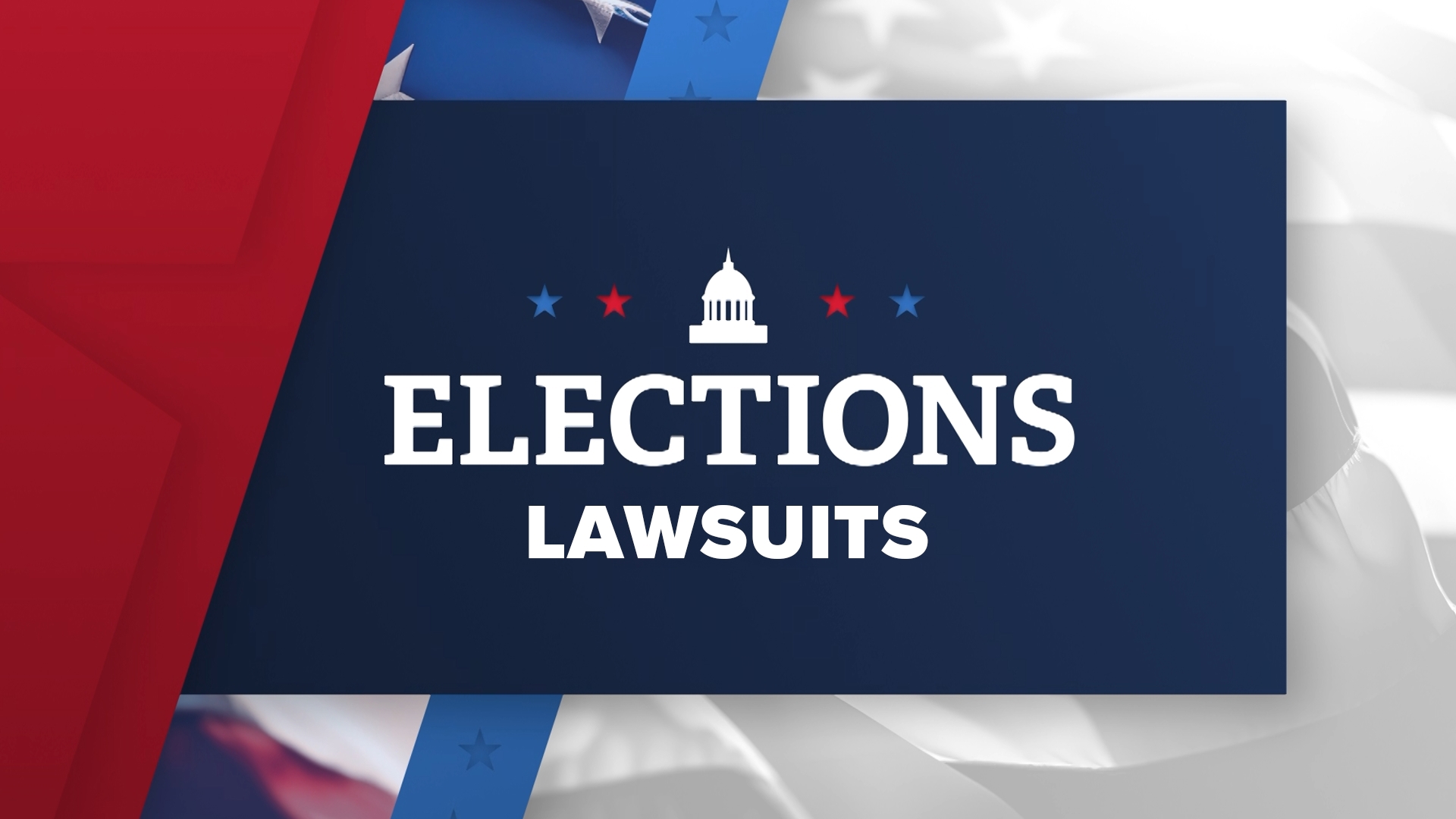MONTGOMERY, Ala — A lawsuit filed in federal court is challenging language on Alabama’s voter registration form, saying that the phrase “so help me God” amounts to a mandatory religious oath prohibited by the Constitution.
Alabama is the only state that requires voters to swear the truthfulness of their voter registration information by signing a form that includes those words without any option of a secular affirmation.
The lead plaintiff is Randal Cragun, an atheist who has sought to register to vote in Alabama since November 2019. He noticed that on the mail-in form that is downloadable from the secretary of state’s website, a warning states: “Read and sign under penalty of perjury,” and, “If you falsely sign this statement, you can be convicted and imprisoned for up to five years.” The declaration begins “I solemnly swear or affirm” and ends with “so help me God.”
Cragun contacted Secretary of State John Merrill’s office to ask how he could register without signing the declaration as it is written, according to the Freedom From Religion Foundation, which filed the suit on behalf of Cragun and three other plaintiffs. The next day, Cragun was told by the director of elections that no legal mechanism existed to provide an alternative, and that crossing out any portion would result in the application being rejected.
“It is deplorable that in our secular nation nontheistic citizens are encountering a religious test to register to vote,” said Annie Laurie Gaylor, co-president of FFRF. “No citizen should have to choose between their right to vote and their freedom of conscience.”
Before filing the lawsuit, the organization sent a letter to Merrill’s office saying that the oath violates the First Amendment. It cited Torcaso v. Watkins, in which the Supreme Court ruled that neither a state nor the federal government can force a person to profess a belief or disbelief in any religion.
Merrill declined to comment until his office has been served with the lawsuit, but according to FFRF, he has maintained that the registration forms are “prescribed by statute” and “that any changes would require legislative action.”
The lawsuit alleges that his office has the authority to create and amend voter registration forms. In a statement, FFRF noted that in all other states, voters are provided either a secular registration form or are not required to submit an oath or affirmation.
The group added that government officials routinely allow people who must take an oath, including attorneys, jurors and witnesses, “to make a secular affirmation instead when they are unable to swear ‘so help me God’ as a matter of conscience.”
The plaintiffs are seeking a permanent injunction that prohibits the secretary of state from requiring voters who register to swear “so help me God” and that requires his office to provide voter registration forms that don’t include the phrase as a requirement. They are also asking for a declaratory judgment that Merrill has violated the Constitution by not providing a secular alternative.
“The secretary of state has willfully excluded nontheist citizens from registering to vote and is coercing a statement of belief in a monotheistic god by requiring nontheists to swear a religious oath,” said Patrick Elliott, FFRF’s senior attorney in the litigation.
In its letter to Merrill, FFRF said that a constitutional ban on mandatory religious oaths is a “well-settled issue.”
In a 1972 case, Nicholson v. Bd. of Comm’rs of Ala. State Bar Ass’n, the court ruled, “We hold that it is a violation of the Constitution for the state of Alabama to compel plaintiff to swear an oath invoking the help of God as a prerequisite to entering upon the practice of law.”
The suit’s three other plaintiffs are Chris Nelson, Heather Coleman and Robert Corker.
It was filed in the U.S. District Court for the Northern District of Alabama, Southern Division. Steven P. Gregory, of the Birmingham-based Gregory Law Firm, is local counsel. FFRF associate counsel Liz Cavell is also involved in the case.



